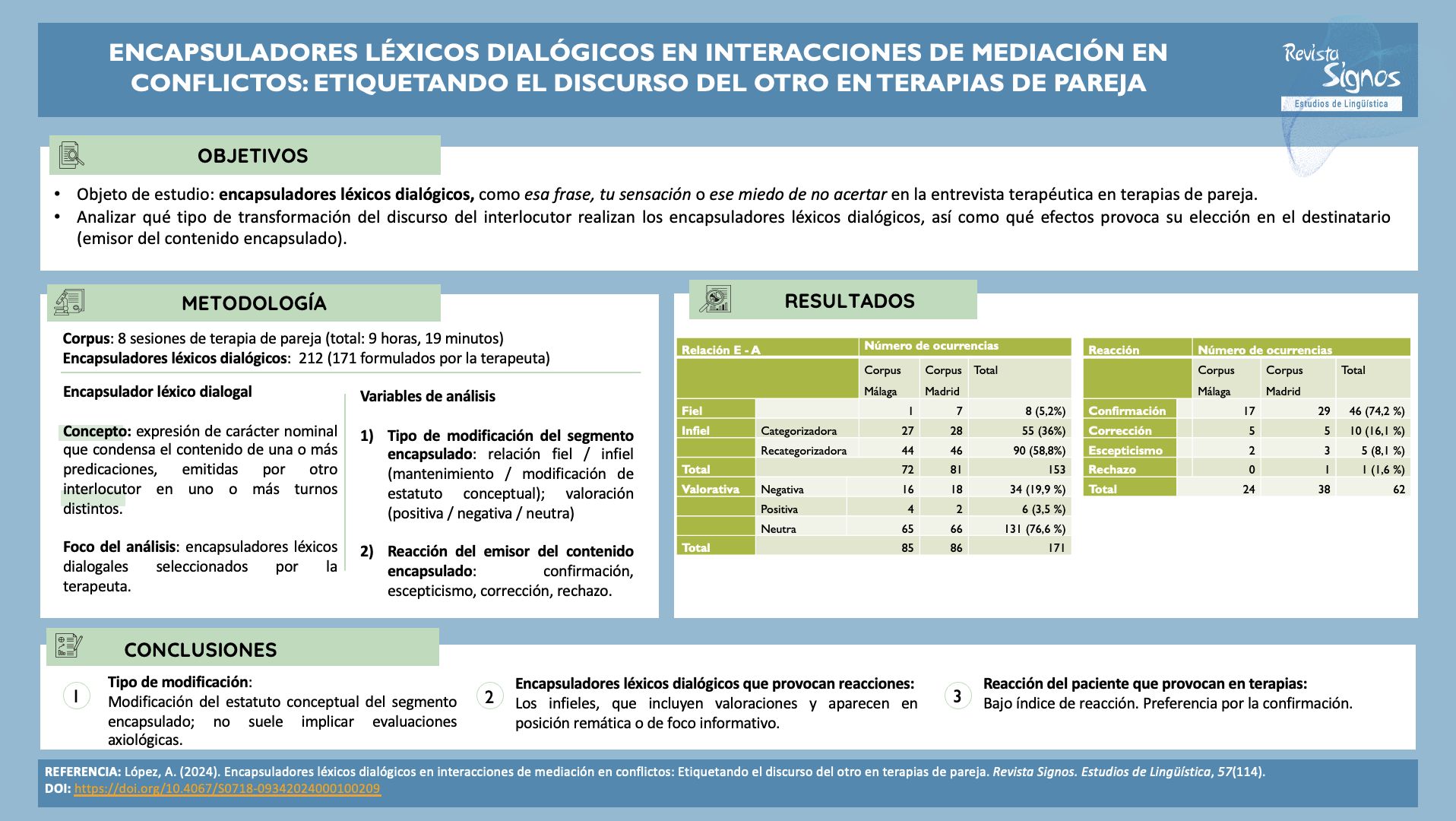Lexical Dialogic Encapsulation in Conflict Mediation Interactions
Labelling the Others’ Discourse in Couples Therapy
Keywords:
lexical encapsulation, discourse labels, dialogue repetition, psychotherapy discourse, institutional interactionAbstract
This article analyzes dialogical lexical encapsulation, nouns that encapsulate the content of what was said in a previous turn by another participant, in couples therapy. The analysis focuses on the most frequent dialogical encapsulations, pronounced by the therapist, and shows that these tend to be used to modify what was said by the parties in conflict and that such modification does not imply an axiological evaluation as much as it modifies the conceptual status of the encapsulated segment, altering its interpretation. This paper also explores the reactions or responses of the addresser of the encapsulated content to these anaphoric mechanisms. The results offer empirical evidence of the explicitness of encapsulators in a rhematic position, which are attended and responded by the addressee more often and constitute means to negotiate discourse interpretation in dialogical genres.

Published
How to Cite
Issue
Section
License
Copyright (c) 2024 Revista Signos. Estudios de Lingüística

This work is licensed under a Creative Commons Attribution 4.0 International License.
Copyright agreement:
Authors who have a manuscript accepted for publication in this journal agree to the following terms:
Authors will retain their copyright and grant the journal the right of first publication of their work by means of this copyright agreement document, which is subject to the Creative Commons Acknowledgment License that allows third parties to share the work provided that its author and first publication in this journal are indicated.
Authors may adopt other non-exclusive license agreements for distribution of the published version of the work (e.g., depositing it in an institutional repository or publishing it in a monographic volume) as long as the initial publication in this journal is indicated.
Authors are allowed and encouraged to disseminate their work via the internet (e.g., in institutional publications or on their website) before and during the submission process, which can lead to interesting exchanges and increase citations of the published work (read more here).


